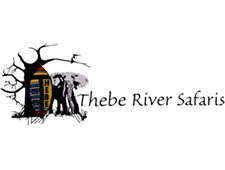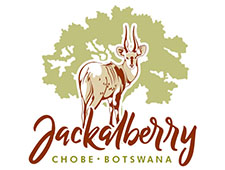NOMAD AFRICA ADVENTURE TOURS – Continuing Movement Into Africa
In a changing tourism market, Nomad Africa Adventure Tours is looking to new territories for further growth opportunities. This South African road tripping business has been delighting tourists for more than 20 years and Owner Alex Rutherford is sure that more can be done, as long as pricing is sustainable.
The success of Africa’s tourism industry has been one constant across a decade which has been characterised by unpredictability, uncertainty, and volatility. In the past 10 years, South Africa has seen multiple recessions; the slow pace of domestic reforms has stifled economic growth in sub-Saharan Africa, and global economic uncertainty has seen some industries around Africa struggle to keep up.
But tourism has boomed. Africa now has the second fastest growing tourism market in the world as access has improved and development has continued. With major global attractions, and a unique offering for global visitors, African governments have looked to tourism to create jobs and drive wealth creation. And in many countries it has been working. Tourism business in Kenya is responsible for around 10% of GDP; in South Africa, it has been reported that tourism supports 1.5 million jobs; in Namibia, tourism contributes around 15% of GDP. More relaxed visa rules in Ethiopia have turned the country into a transport hub, growing by 48.6% in 2018 (according to the Jumia Africa Hospitality report).
In 2018, 67 million people visited Africa, a 7% increase on the previous year. This helped generate 8.1% of Africa’s GDP. Without doubt, tourism is a key contributor.
PRICE
One man who has realised the amazing potential of this industry is Alex Rutherford, CEO and Founder of South Africa-based tour operator, Nomad Africa Adventure Tours (Nomad). The company shows tourists a real view of Africa, taking them off the beaten track en route to their destination, allowing immersion in local culture and community.
Rutherford established the company in 1997, when African tourism was a whole different industry, and saw potential after travelling across Africa and witnessing the poor standards of hospitality on offer. After 22 years, Nomad has become an industry leader and is a well-established player in the safari and adventure tourism market.
But now, with a booming tourism market, Rutherford is concerned about rising costs. The very essence of his business is about putting people in touch with the African wild, at a reasonable price. With governments realising the opportunities presented by tourism, some charges have already started to creep up.
“If we are not careful, tourism will become the domain of the rich only. My main concern for the future is pricing,” Rutherford tells Enterprise Africa.
Nomad uses purpose-built trucks, with large windows and strengthened canopies, to transport tourists through some of southern and eastern Africa’s iconic draws. With fees going up, the company has to pass on costs to the consumer, and this is not good for those on a budget.
“As an operator, we are dealing with increasing park fees and increasing costs to take people to these places,” says Rutherford. “There will always be people that can afford anything, but I am not a fan of five-star travel. I believe that normal people need to see these things as normal people make the world go around. The super-rich can do whatever they want but normal people get more involved emotionally with the communities and contribute positively. In Rwanda, a gorilla permit is $1500 for one hour and, in my opinion, that is pushing the envelope of what is absolutely unacceptable.
“That price makes it unaffordable for most people. There are rumours that Uganda will also push its prices up. The park access fees in East Africa are outrageous. Vehicles are $200, it’s $50 per entrance and $50 for camping with almost no facilities, and southern Africa is looking on wondering how they get away with charging those amounts.
“The five-star places are low volume, high-cost. Ironically, it’s the three-star market that creates more jobs as you need more people to service volume and, as long as the volume is not damaging the environment, that is where you create jobs,” he adds.
Tourism is still viewed by many as a gold mine, but if industry-management is not carried out in a sustainable manner, the very desirable attraction of Africa will quickly be overtaken by other parts of the world where value for money is a focus. Currently, the Asia-Pacific geography has the fastest growing tourism market in the world as many travellers flock to the area to enjoy a vast range of activities and cultures without breaking the bank.
NEW MARKETS
In October, the South African Tourism industry took a shot in the arm when it signed a deal with China’s largest online platform, Tencent, in an effort to attract more visitors. Digital marketing across the Tencent ecosystem will help to promote South Africa as a preferred destination as the government looks to increase arrivals from China from around 100,000 in 2018 to half a million annually.
In Q1 of 2019, Stats SA reported a slight dip in arrival numbers from key markets including Germany, the Netherlands and the UK. Tourism Minister Mmamoloko Kubayi-Ngubane was quick to appeal to the country for stability to ensure visitors return, and she also visited China and Japan in an effort to boost the reputation of Brand SA.
At Nomad, preparations are already underway for new types of service crafted around the expectations of travellers from the East.
“Although it is not yet confirmed, after many years of resisting, we are looking at entering the coach market,” says Rutherford. “We will keep our adventure product and we certainly won’t be taking our coaches to places like Namibia. For South Africa and Botswana, it’s absolutely fine to work with coaches. We are busy quoting on a big contract right now and if we get that, it will be a big step for us. I have steered away from it, mainly because our passion is the bush and coaches are a mainstream product. We have to stick with the market and recognise supply and demand, and we see there are certain markets that work a lot with coaches, such as Chinese and Indian. Right now, we don’t have something for them and we are getting requests so it will be another expansion just to broaden our offering.”
In order to make the most of all of the fantastic attractions that are on offer across sub-Saharan Africa, Nomad will also be investing in new offices, one in Kenya and one in Namibia. This idea comes as the company has witnessed an increasing age in its customer base, and a desire to move around less while on vacation.
“We are finding that people want to travel less and they are more destination focussed,” details Rutherford. “While the demand is still there for our traditional trips, we’ve also made the decision that we have to launch a new series of products that cater more for people who don’t necessarily want to see four countries in one trip. We will be opening an office in Namibia and we will be running shorter trips in Namibia whereas currently most of our trips run from South Africa, through Namibia, into Botswana; or they start in Namibia and run to Victoria Falls or somewhere else in the region.”
Next year, these smaller, more focussed tours will kick off with a slightly higher price point, aimed a more mature traveller who is still value conscious.
“Over the past couple of years, we have seen quite a radical shift in the marketplace in terms of travel behaviour. It was stable for 10-plus years and, around five years ago, we started to notice a shift as clients got older and trips got shorter. Africa has become more expensive and that is a driver behind the clients getting older,” says Rutherford.
“It’s a little sad to admit that, right now, camping is on the decline. I would imagine in 10 years, just 10% of our product will be camping whereas 10 years ago it was 90% – it’s a huge change that has happened quite fast. Again, it is linked to older people who did camping when they were younger but they are now done with it and the youth market is travelling less in Africa – they are now looking to Asia and South America where it is cheaper. That is a shame but we don’t have control over that as the cost comes from the activity fees and the park costs. We are evolving to meet the different requirements of the market.”
This evolution also includes a new emphasis on east Africa where safari adventures and wildlife excursions still rule. A new office will be opened in Nairobi to cater for those solely interested in game viewing in the Maasai Mara or other popular safari destinations.
Nomad is also preparing to launch in Rwanda, a country which has reinvented itself as a tourism hub with unique offerings.
“In 2020 or 2021, we will launch in Rwanda. I recently visited the country and was pleasantly surprised by what I saw. We are looking at entering with a primate tour angle,” explains Rutherford.
Beyond Rwanda, Nomad will wait before looking at further expansion opportunities. The tourism market is ever-changing and it is important to understand each market fully before jumping in. Rutherford is also keen to always remain in control of quality rather than becoming a reseller and offering clients something they could go out and organise for themselves.
“Rwanda is at the top of our list,” he says. We are looking at Angola, but I don’t think it’s ready yet. The demand is not quite there yet and it is a very expensive country. Beyond that, not really. We view ourselves as an operator and not a reseller. Our next options would be Ethiopia and Madagascar but we would end up subcontracting everything and we’ve found in the past that our clients are not keen on that as they could just arrange it themselves. We want to stick to tours that we can run ourselves.
“The rest of Africa is really tough. Once you get north of Uganda, you start dealing with a whole other world. There’s a lot of no-go countries right now – the DRC and Sudan are very hardcore places and we are seeing people turn away from that type of travel and opting for more comfortable travel.”
Currently, regulations differ from nation to nation and this can make things tricky for operators like Nomad. In east Africa, for example, foreign companies cannot enter national parks as operators and have to subcontract that section of a trip to a local partner. By opening local offices and creating businesses in-country, Nomad will be able to retain control over its routes and service quality. Continuing to develop lasting relationships with agents and suppliers will be vital as these new businesses go up against established competitors.
Nomad will add to its fleet as it expands in east Africa, bringing more land cruiser-type vehicles which are reliable and perfectly suited to safari conditions, in what Rutherford terms a “fair capital investment”.
In South Africa, the company is looking to improve on its already very successful dive tour product where visitors can go through a “surf and turf” offering, experiencing safari products inland before being transported out to the beaches of KZN for scuba.
MAKING THE MOST OF TOURISM
Both the public and private sectors have invested heavily into tourism, especially in South Africa where it is estimated that more than 650,000 jobs are directly supported by tourism. But, even with major investment, it is still the responsibility or the industries big players to make the most of the opportunities that are presented.
Rutherford is certain that tourism holds major prospects, and he is in no doubt that African tourism has much room for growth.
“There is massive potential – there is no doubt. In some countries, it is the only potential. There are many countries where there isn’t a lot going on and tourism needs to be the big-ticket item,” he says.
“Compared to a lot of other industries, with just a little bit of effort can result in a fast turnaround. The ability of social media to highlight something that is exciting or different, you can get the word out so quickly and you don’t have to wait for decades of word of mouth.
“It is definitely already a huge player and can definitely grow substantially. The nice thing about Africa is that there is still so much open space in terms of wild Africa – it is not built up, so the capacity for tourism to grow is there. The responsibility from people is also growing strongly. In terms of looking after these spaces, I don’t have any concerns that things will get wrecked by having more tourists; if anything, it’s getting more controlled and more regulated and that is good.”
This is testament to the work being done by the likes of Nomad and others in the industry. It is a stark contrast to the picture that Rutherford found when he was travelling across the continent, unknowingly becoming an entrepreneur and developing the idea for his business.
“I went overseas and worked for a while but I got it into my head that I wanted to drive home and didn’t want to fly. I wanted an adventure and I’d always had an interest in Africa and the bush. It wasn’t a business thing at that point, I saw it as an opportunity to see the continent. Little did I know it would be the trip from hell. It was a hard trip. There was very little entertainment value and it was more terrifying than anything.
“On the trip, I encountered a couple of old school trans-Africa travel companies and, back then, what I saw was shocking. It was rough and ready, the professionalism of the guides and the standards of the vehicles was pretty hardcore. There were people getting sick and even dying. I thought to myself, there has to be a better way to do this as the principle isn’t complicated,” he remembers.
DRIVING VISION
After two decades in African tourism, Alex Rutherford is still buoyant about this exciting industry, and he is enjoying planning a future on the continent. Even though the industry is changing, Nomad is set up to be nimble and reactive to market conditions, without corporate shareholders, and with highly experienced managers on the ground.
“I have a very good team and a lot of them have been with me for a long time. They have worked from the ground up and they know the business. We have a solid operational background across various departments,” he says.
“I am lucky as I now take on more of the visionary jobs in the company. I have just concluded a two-month trip in East Africa doing site inspections and searching out new routes – that is where the Rwanda idea came up. Without this trip we would have never realised the opportunities – it gets the creative juices flowing as you get out and talk to people about what is popular.”
Many travel agent and tour operator managers, especially those that work as part of international businesses, would never get this type of opportunity and would more often be focussed only on sales rather than experience. Nomad is different.
“We are a journey company, not a destination company,” states Rutherford. “Our focus is on the process of travelling; in simple terms, the road tripping of Africa – meeting people, interacting with the local community, seeing a lot in a relatively short space of time.”
The entrepreneur, who spent the first decade with Nomad “chained to the desk” is looking forward to improving market conditions in the future, and certainly still believes that Africa is alive and waiting for you to discover her magic.
“2018 was a bit of a drop from 2017 when we had our best ever year. 2019 has been flat and it’s frustrating as it’s all down to market conditions that are out of our hands. Things ebb and flow, and sometimes you just have to wait things out,” he says.
71% of tourists spend money in Africa on leisure activities but less than 5% of international travel arrivals are in Africa. This is a market with massive room for growth. At Nomad Africa Adventure Tours, growth into new markets and the addition of new products to bulk out the portfolio will only strengthen what is a superb travel business that delivers value for its clients.



